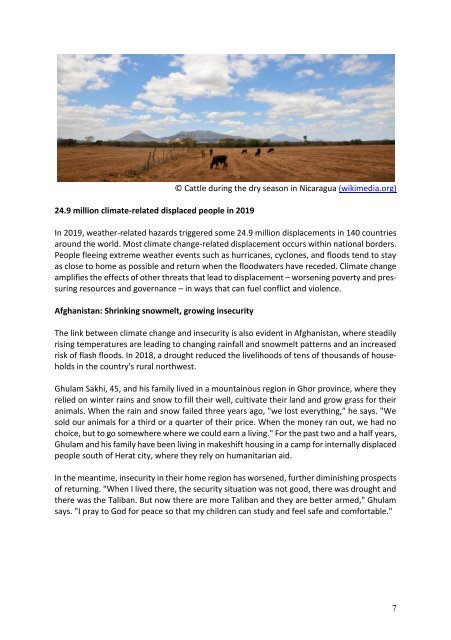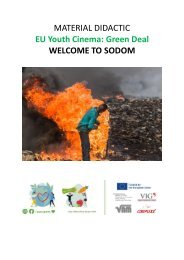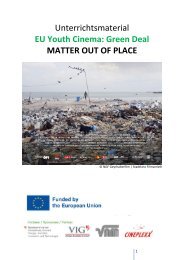LET'S CEE Film Festival Katalog 2017
Official Catalogue of the LET'S CEE Film Festival 2017
Official Catalogue of the LET'S CEE Film Festival 2017
You also want an ePaper? Increase the reach of your titles
YUMPU automatically turns print PDFs into web optimized ePapers that Google loves.
24.9 million climate-related displaced people in 2019<br />
© Cattle during the dry season in Nicaragua (wikimedia.org)<br />
In 2019, weather-related hazards triggered some 24.9 million displacements in 140 countries<br />
around the world. Most climate change-related displacement occurs within national borders.<br />
People fleeing extreme weather events such as hurricanes, cyclones, and floods tend to stay<br />
as close to home as possible and return when the floodwaters have receded. Climate change<br />
amplifies the effects of other threats that lead to displacement – worsening poverty and pressuring<br />
resources and governance – in ways that can fuel conflict and violence.<br />
Afghanistan: Shrinking snowmelt, growing insecurity<br />
The link between climate change and insecurity is also evident in Afghanistan, where steadily<br />
rising temperatures are leading to changing rainfall and snowmelt patterns and an increased<br />
risk of flash floods. In 2018, a drought reduced the livelihoods of tens of thousands of households<br />
in the country's rural northwest.<br />
Ghulam Sakhi, 45, and his family lived in a mountainous region in Ghor province, where they<br />
relied on winter rains and snow to fill their well, cultivate their land and grow grass for their<br />
animals. When the rain and snow failed three years ago, "we lost everything," he says. "We<br />
sold our animals for a third or a quarter of their price. When the money ran out, we had no<br />
choice, but to go somewhere where we could earn a living." For the past two and a half years,<br />
Ghulam and his family have been living in makeshift housing in a camp for internally displaced<br />
people south of Herat city, where they rely on humanitarian aid.<br />
In the meantime, insecurity in their home region has worsened, further diminishing prospects<br />
of returning. "When I lived there, the security situation was not good, there was drought and<br />
there was the Taliban. But now there are more Taliban and they are better armed," Ghulam<br />
says. "I pray to God for peace so that my children can study and feel safe and comfortable."<br />
7


















